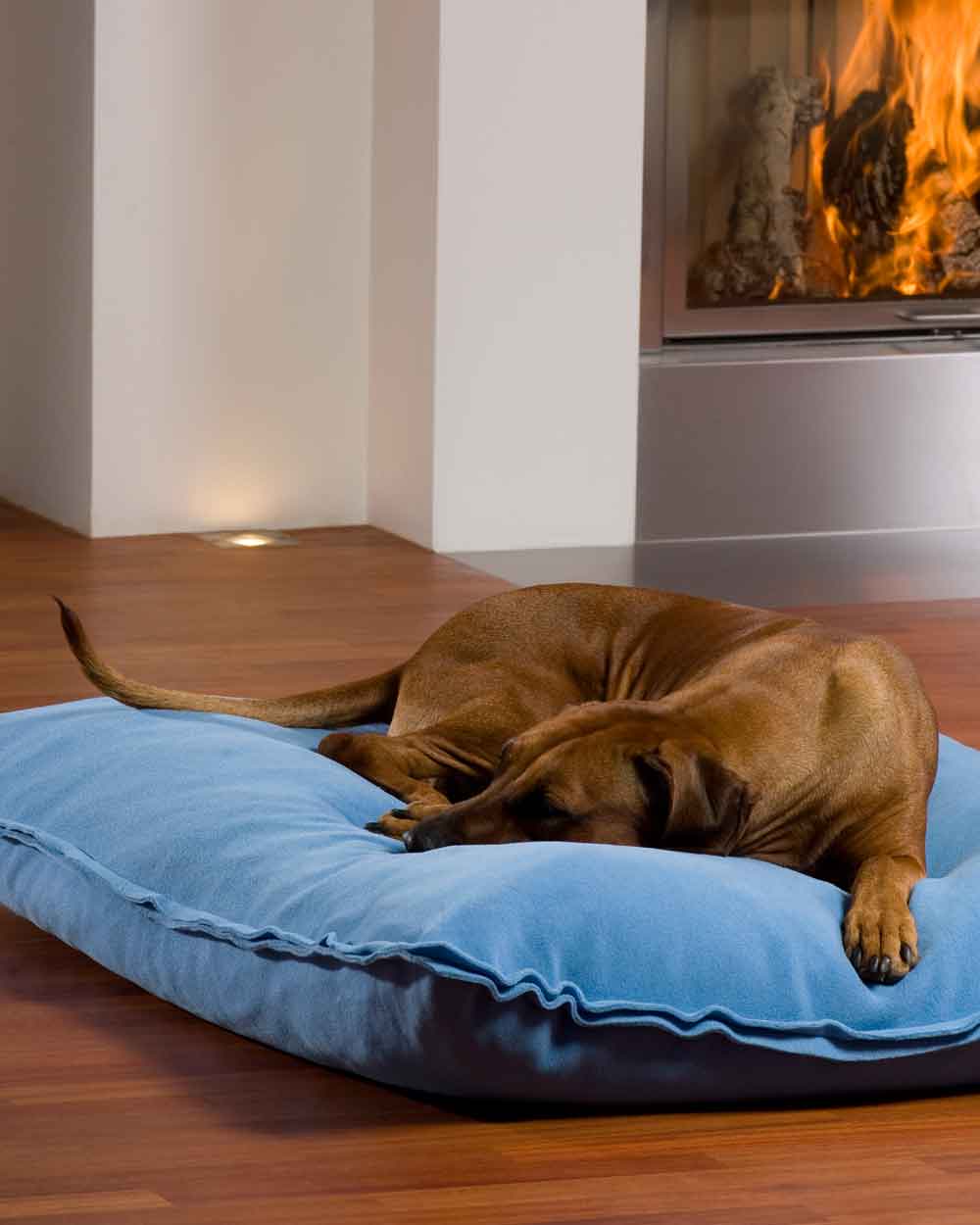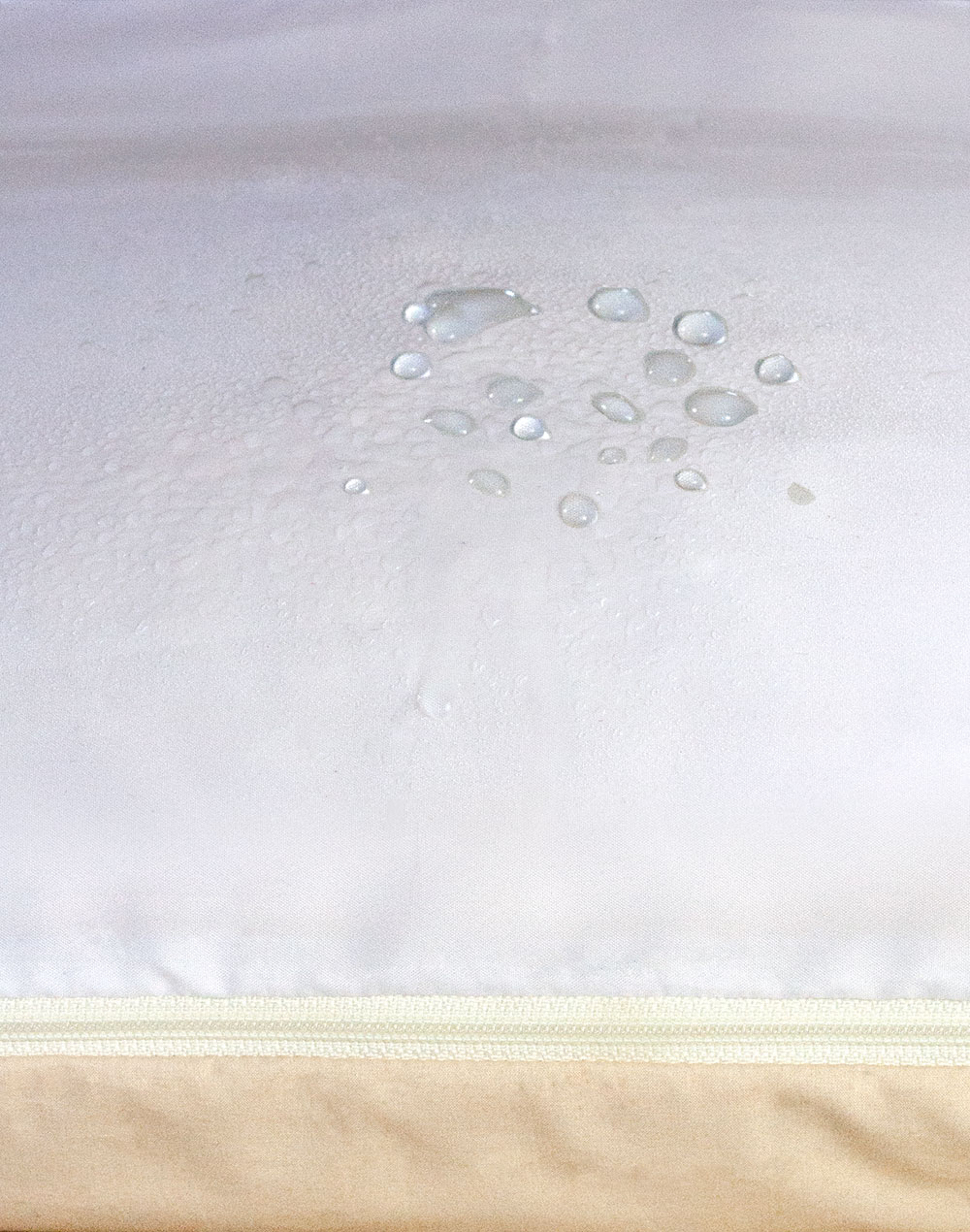If the animal loses urine uncontrollably, this is known as canine incontinence. After sleeping, the dog leaves wet patches on its dog bed and leaks urine, even though it has long been house-trained. The lives of both dog and owner are severely affected and a veterinary diagnosis and treatment is necessary.
DIVAN Uno dog cushion with incontinence cover
What is incontinence in dogs?
An incontinent dog unconsciously leaks urine or faeces. This can happen while standing, walking or sleeping. Depending on how severe the dog’s incontinence is, it can be a few drops of urine or a whole stream. More rarely, incontinence affects faeces. In the most common form of incontinence, the dog loses a few drops of urine at night while sleeping. If the bladder sphincter is relaxed, the dog can no longer control it. This often happens in older female dogs when they no longer produce female sex hormones. However, incontinence can also occur in neutered dogs, due to illness or trauma.
More female dogs are affected than male dogs, as the ureter is much shorter and straighter in female dogs. Large dogs such as Dobermans, Rottweilers, Boxers and Giant Schnauzers are more frequently affected. Sheepdogs, Bernese mountain dogs, dachshunds and spaniels are less frequently affected.
Why is my dog incontinent?
Several reasons can lead to incontinence in dogs. There is age-related incontinence, which is more common in female dogs than male dogs. Castration in dogs is also associated with incontinence. In around 30% of all large, spayed bitches, incontinence occurs on average after 3 to 5 years. In unfavourable cases, incontinence occurs immediately, in favourable cases only after 8 to 10 years. Only 10% of smaller dog breeds are affected by incontinence.
Various diseases such as cystitis, malformations of the ureters or nerve damage can lead to incontinence. To find out the cause reliably, an appointment with the vet is essential.
Diagnosis and treatment of incontinence in dogs
If there is a disease causing the incontinence, it must be treated without fail. Malformations in the urethra, bladder stones or a tumour in the bladder are serious conditions that may require surgical intervention.
Dogs that become incontinent due to castration can be treated well and successfully with appropriate medication. These drugs increase the muscle tension in the urethra and support urethral closure.
Homeopathic therapy can help and nutritional supplements such as pumpkin seeds or cranberries can have a positive effect.
Can incontinence in dogs be prevented?
Basically not. It is assumed that there is less urinary leakage due to castration if only the ovaries are removed and the uterus remains in the dog.
Tips for living with an incontinent dog.
It is not in a dog’s nature to soil its living area. House-trained animals suffer psychologically from their incontinence. Dogs have fine noses and they hate smelling their urine. It is very important to react with understanding. As the dog is not leaking urine on purpose, it must not be punished for it under any circumstances.
Wearing nappies from time to time can be a way of making everyday life easier. Unfortunately, it is not advisable to wear nappies permanently, as this can irritate the dog’s skin and coat.
To prevent unpleasant odours from forming in the house, it is helpful to clean all floors regularly. Also wash the dog bed at short intervals. The dog beds from pet-interiors are all washable and suitable for tumble drying. We have developed matching incontinence covers for all our dog cushions to make it easier for you to live with your four-legged friend.
The incontinence cover from pet-interiors keeps the dog bed clean






Recent Comments